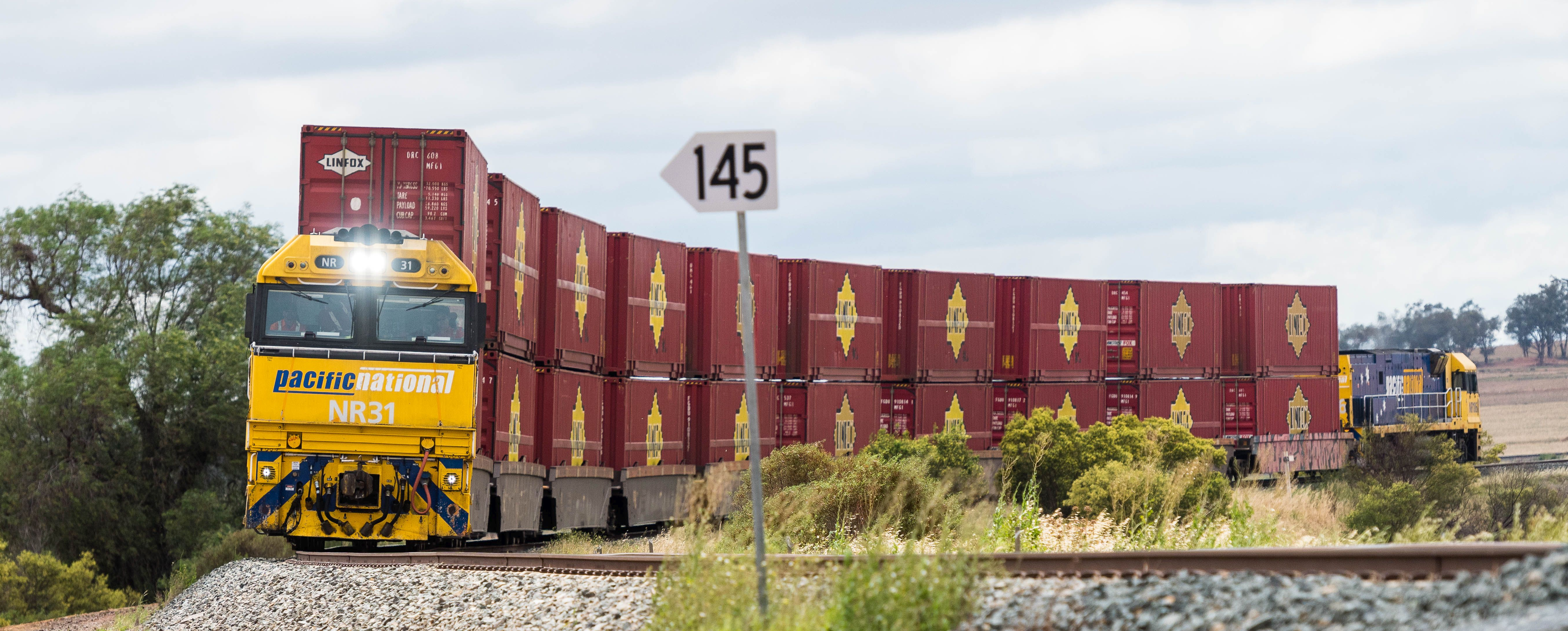
Australia’s largest rail freight operator Pacific National today congratulated Australian Rail Track Corporation (ARTC) for moving ahead with construction to connect the north-south Inland Rail and east-west Transcontinental Railway via the company’s Parkes Logistics Terminal.
Pacific National CEO Dean Dalla Valle said it was pleasing to see ARTC working closely with rail freight operators to help generate more momentum behind the $10 billion Melbourne to Brisbane Inland Rail project.
“Once fully operational, Pacific National’s Parkes Logistics Terminal will consolidate more than 450,000 cargo containers each year in the heart of regional NSW; many to be hauled on the Inland Rail between the ports of Melbourne and Brisbane.
“In the future, Parkes will be akin to the major freight and logistics hub of Memphis in the interior of the United States,” said Mr Dalla Valle.
Pacific National owns 365-hectares at Parkes, with the logistics terminal (currently under major construction) located within the Parkes Shire Council’s National Logistics Hub.
Mr Dalla Valle said 1,800-metre freight trains double-stacked with cargo containers are expected to be hauling from the Parkes Logistics Terminal to Perth later this year.
“Connecting Inland Rail to the Transcontinental Railway via Pacific National’s Parkes Logistics Terminal is imperative to help shift freight volumes from road to rail.
“Australians want real trains, not road trains hauling big volumes of freight,” said Mr Dalla Valle.
As the infrastructure manager for both Inland Rail and the Transcontinental Railway, ARTC has engaged Martinus Rail to construct the connections (called turnouts). Weather permitting, the turnouts to the Parkes Logistics Terminal will be completed by the end of August this year.
The Transcontinental Railway runs to Port Augusta in South Australia, where it joins the Trans-Australian Railway stretching across the vast Nullarbor Plain to Kalgoorlie in Western Australia.
Mr Dalla Valle said connecting major intermodal import/export terminals – where trains and trucks meet – to the ARTC-managed network is critical to help secure more freight volumes on rail.
“Australia’s rail freight industry will only grow and prosper if below-rail managers like ARTC and above-rail operators like Pacific National work together to help shift more container and bulk volumes from road to rail,” said Mr Dalla Valle.
Mr Dalla Valle said hauling containers and bulk commodities like grain and steel by rail over long distances is safe, green and efficient – rail freight is on the right side of every debate.
“For every tonne of freight hauled a kilometre, road freight produces 16 times more carbon pollution and 14 times greater accident costs than rail freight.
“A single 1,800-metre freight train hauling containers is equivalent to removing 70 B-double trucks or 50 B-triple trucks from our roads,” said Mr Dalla Valle.
